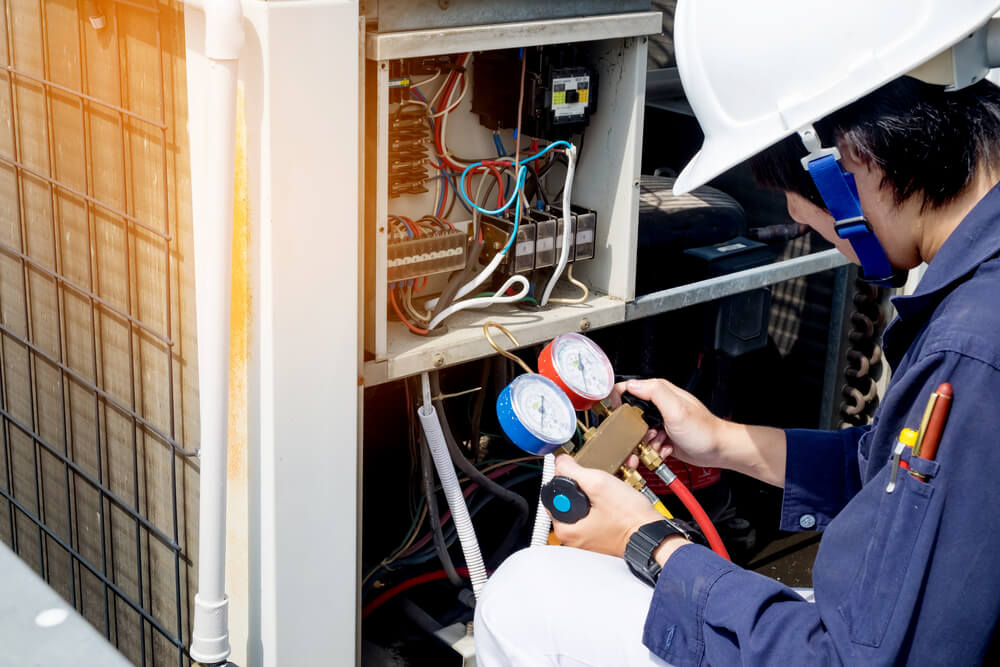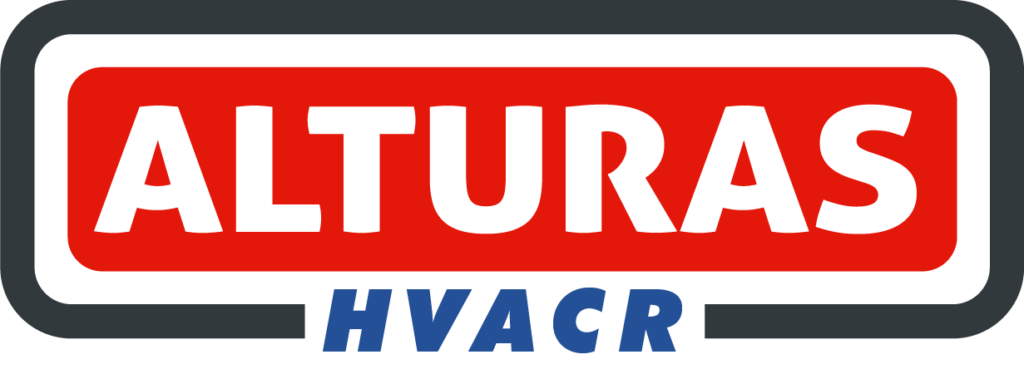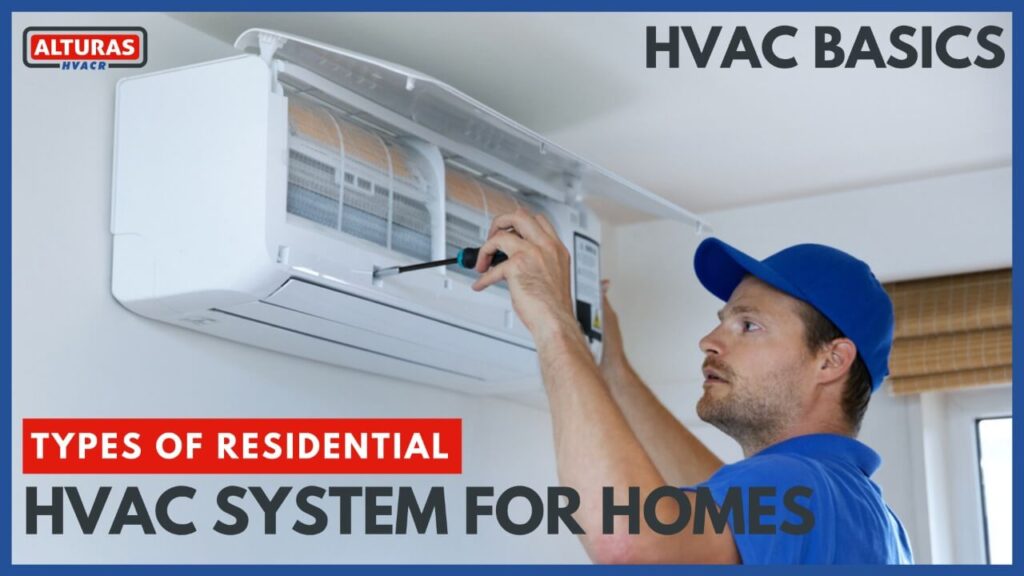When it comes to choosing the right HVAC (Heating, Ventilation, and Air Conditioning) system for your home, understanding the various options available is crucial. Residential HVAC systems are designed to regulate the indoor climate, ensuring comfort and air quality. These systems can be broadly categorized into ducted and ductless systems, each with its unique features and benefits. In this comprehensive guide, we will explore the different types of residential HVAC systems, including ducted systems, ductless systems, split HVAC systems, packaged HVAC units, boilers, chillers, and those specifically designed for mobile homes.
Types of Ducted Residential HVAC Systems
Ducted systems are among the most common types of HVAC systems used in residential settings. These systems use a network of ducts to distribute conditioned air throughout the home. There are several types of ducted HVAC systems, including:
1. Central Air Conditioning Systems
Central air conditioning systems are the most traditional type of ducted HVAC system. These systems consist of an outdoor unit, which contains the compressor and condenser, and an indoor unit, which contains the evaporator coil and air handler. The system circulates cooled air through ducts to various rooms in the house.
2. Heat Pump Systems
Heat pump systems are versatile as they can provide both heating and cooling. These systems work by transferring heat from one place to another. During the summer, the heat pump removes heat from the indoor air and releases it outside. In the winter, it reverses the process, extracting heat from the outside air (or ground) and bringing it indoors.
3. Hybrid Heat Pump Systems
A hybrid heat pump system combines the efficiency of a heat pump with the added reliability of a gas furnace. This system can switch between electric and gas heating based on the outside temperature, providing an energy-efficient solution for varying climates.
4. Zoned HVAC Systems
Zoned HVAC systems allow for different areas (or zones) of the home to be heated or cooled independently. This system uses dampers within the ductwork to control the airflow to specific areas, enhancing energy efficiency by only conditioning occupied spaces.
Types of Ductless Residential HVAC Systems

Ductless HVAC systems, also known as mini-split systems, do not require ductwork, making them ideal for homes without existing ducts or for specific areas that require independent climate control. The main types of ductless systems include:
Also Read: What is a Ductless Air Conditioner?
1. Single-Zone Mini-Split Systems
Single-zone mini-split systems are designed to heat or cool one specific area of the home. These systems consist of an outdoor unit connected to an indoor unit, providing targeted climate control without the need for ducts.
2. Multi-Zone Mini-Split Systems
Multi-zone mini-split systems allow for multiple indoor units to be connected to a single outdoor unit. This setup is ideal for homes with several areas requiring independent temperature control. Each indoor unit operates independently, providing customized comfort throughout the house.
3. Ductless Heat Pumps
Ductless heat pumps operate similarly to ductless air conditioning systems but offer the added benefit of heating. These systems can efficiently heat and cool spaces without the need for ducts, making them versatile for various residential settings.
Split HVAC Systems
Split HVAC systems are the most common type of residential HVAC system, offering a reliable and cost-effective solution for both heating and cooling. These systems are called “split” because they have both an indoor and an outdoor unit. The indoor unit contains the evaporator coil, while the outdoor unit houses the compressor and condenser. The two units work together to circulate cool air in the summer and warm air in the winter. Types of split HVAC systems include:
1. Traditional Split Systems
Traditional split systems are the most widely used type of HVAC system in residential properties. These systems are highly efficient, with the outdoor unit providing the cooling and the indoor unit distributing the conditioned air through the home’s ductwork.
2. Ductless Split Systems
As mentioned earlier, ductless split systems are ideal for homes without existing ducts. These systems provide a flexible solution for adding HVAC capabilities to older homes or specific areas without major renovations.
Packaged HVAC Units
Packaged HVAC units are all-in-one systems where all components are housed in a single outdoor unit. These units are often installed on the roof or on a concrete slab next to the house. Packaged units are available in several configurations, including:
Also Read: Types of Commercial Kitchen Hoods
1. Packaged Air Conditioners
Packaged air conditioners are designed to provide cooling for the entire home. These units contain all necessary components, including the compressor, condenser, and evaporator coil, in one compact unit. They are ideal for homes with limited indoor space for separate components.
2. Packaged Heat Pumps
Packaged heat pumps provide both heating and cooling in one unit. These systems are energy-efficient and can be a cost-effective solution for homes in moderate climates.
3. Packaged Gas-Electric Units
Packaged gas-electric units combine an air conditioner and a gas furnace in a single unit. This dual-fuel system offers the benefits of both electric cooling and gas heating, making it suitable for areas with cold winters and hot summers.
Boilers and Chillers
Boilers and chillers are less common in residential settings but can be found in larger homes or those with specific heating and cooling needs. These systems offer unique benefits:
1. Boilers
Boilers provide heating by using hot water or steam circulated through radiators, baseboard heaters, or radiant floor systems. They are highly efficient and can offer consistent, comfortable heat in colder climates.
Helpful for you:
2. Chillers
Chillers are typically used in larger residential properties or multifamily units to provide cooling. These systems work by circulating chilled water through air handlers or fan coils to cool the air. Chillers are more common in commercial settings but can be adapted for residential use in specific situations.
Helpful for you:
Heating and Cooling Systems for Mobile Homes
Mobile homes have unique heating and cooling requirements due to their smaller size and construction materials. The most common systems used in mobile homes include:
1. Packaged Units
Packaged units are a popular choice for mobile homes because they are compact and efficient. These units provide both heating and cooling in a single package, making them easy to install and maintain.
2. Split Systems
Split systems can also be used in mobile homes, especially in larger units. These systems offer flexibility in installation and can be tailored to the specific needs of the home.
3. Furnaces
Furnaces are often used in mobile homes to provide heat during the winter months. These systems are designed to be compact and efficient, ensuring the home stays warm without taking up too much space.
Helpful for you:
Conclusion
Selecting the right residential HVAC system involves considering various factors such as the size of your home, climate, and specific heating and cooling needs. Whether you opt for a ducted system like central air conditioning or a ductless mini-split system, each option offers distinct advantages. Understanding these different types of HVAC systems can help you make an informed decision that ensures comfort and efficiency in your home.
FAQs
What is the most efficient type of residential HVAC system?
The most efficient type of residential HVAC system varies depending on the climate and home size. Heat pumps, particularly hybrid systems, are known for their high efficiency in moderate climates.
Can I install a ductless HVAC system in an older home?
Yes, ductless HVAC systems are ideal for older homes without existing ductwork. They offer a flexible and efficient solution without the need for extensive renovations.
How do packaged HVAC units differ from split systems?
Packaged HVAC units house all components in a single outdoor unit, while split systems have separate indoor and outdoor units. Packaged units are more compact, making them suitable for homes with limited space.
Are boilers still used in residential settings?
Yes, boilers are still used in residential settings, particularly in colder climates. They provide consistent and efficient heating through radiators or radiant floor systems.
What type of HVAC system is best for mobile homes?
Packaged units and furnaces are popular choices for mobile homes due to their compact size and efficiency. Split systems can also be used in larger mobile homes.

